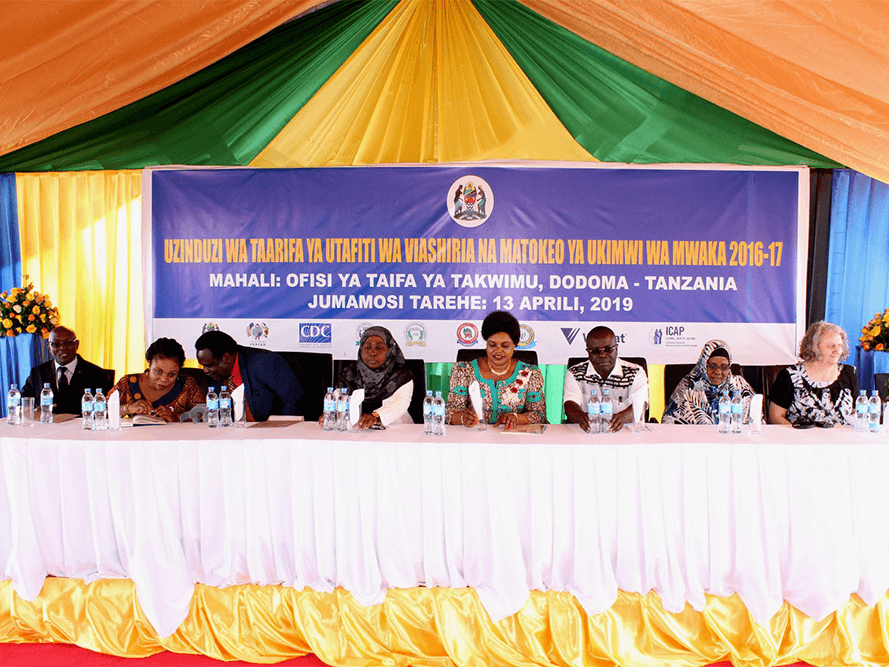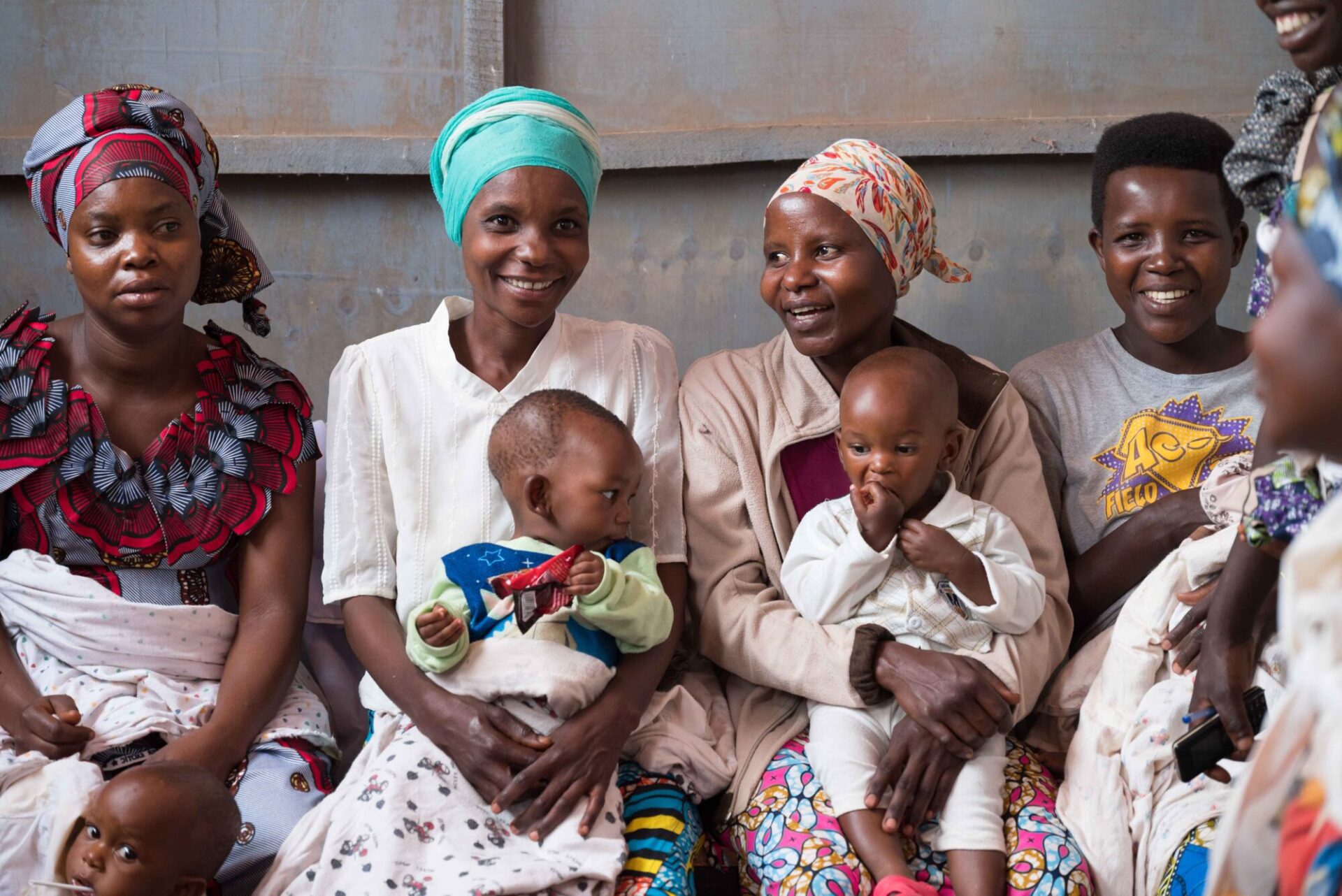Tanzania, which has been one of the countries at the epicenter of the HIV epidemic in sub-Saharan Africa, now has a critical set of data about its progress in addressing HIV among its people – and equally critical insight into the work that still lies ahead.
On April 13, 2019, officials gathered in the Tanzanian capital, Dodoma, to announce the final results of the Tanzania HIV Impact Survey (THIS) 2016-17. Key findings from the report reveal that 5.0% of adults (15-64 years) in Tanzania are currently living with HIV. A large percentage of these adults – nearly 40% – are unaware of their positive status, well-below the UNAIDS target of 90% of all people living with HIV knowing their status by 2020. Conversely, there has been progress in adults living with HIV who are aware of their status, with 93.6% receiving anti-retroviral therapy (ART) and 87.0% of those on ART having viral load suppression.
At the launch event, the Minister of State in the Prime Minister’s Office responsible for Parliament, Policy Coordination, Labour, Employment, Youth and the Disabled, Jenista Mhagama, stressed the importance of using the THIS report to inform future HIV program implementation. “The main objectives from the results of THIS 2016-2016, apart from other interventions, is to prevent new HIV infections – for those who are HIV-negative to remain negative – and those found to be HIV positive to be enrolled into care and start ART immediately,” Minister Mhagama said.
Read the full article on the PHIA website







